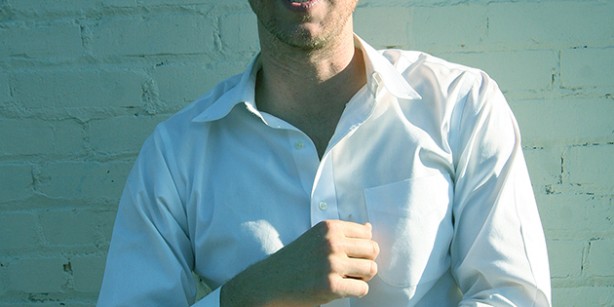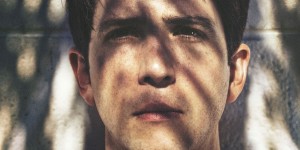 Music
Music
Hamilton Leithauser made a nightclub record that would make Frank Sinatra proud
by Ryan McNutt
June 20, 2014
When indie rockers the Walkmen announced they were going on a rather permanent-sounding “extreme hiatus” last fall, fans could take solace in knowing they’d be hearing from frontman Hamilton Leithauser soon enough. Reports had emerged months earlier that he’d been working on his solo debut with some impressive friends in tow, including Walkmen guitarist Paul Maroon, Fleet Foxes’ Morgan Henderson, and Vampire Weekend’s Rostam Batmanglij, who had a helping hand in writing several of the album’s tracks.
The resulting record, Black Hours, released June 3 on Ribbon Music, teases at the edges of Leithauser’s previous work in compelling fashion. At times rollicking and fun, at times subdued and contemplative, it’s a smart, sophisticated debut that places the singer’s instantly recognizable voice front-and-centre.
When I reached Leithauser at his home in Brooklyn to talk about the album, it was less than a week after he’d debuted the new material at a two-night stand in New York, playing with a 14-piece band complete with horns and strings. “It’s so fun,” he said. “I wish I could afford to do that every night.”
AUX: Was it odd being on-stage and to not see the same four guys you’ve had behind you for so many years?
Hamilton Leithauser: Yeah, but I finished this record in the fall, so I’ve had a lot of time to think about it and get ready for it. Honestly, I was just chomping at the bit to go, rather than anything else.
When did the idea of doing your own record start taking shape? Was it something you’ve always had in the back of your mind, or was it something that really only took shape as the Walkmen wound down?
Well, the reason the Walkmen wound down is some of us wanted to do our own thing. I can’t say that all those years I was like, “Man, I wish I could just go solo.” It’s not like some goal I had in mind. But there is that feeling once everybody [in the band] moves to different cities, you start thinking, “I’m sitting here alone, writing these songs in a room. I don’t really even see why I’d bother organizing band practice to finish them.” The song’s done; why would I bother booking a plane ticket, or driving two hours to go to band practice to finish this thing when, really, it’s done right now?
Even though you’ve been performing music for years, and coming from a band with a devoted following, to what degree does recording and touring under your own name feel like starting over?
A lot less people know my name. I haven’t really seen how that’s going to play out yet, because I haven’t really gone on tour. It seems like a risk; I am like new band, you know? I can’t tell how the popular perception works on these things.
For me: I’m psyched on this record and I have these great cats [playing with me] and I really think people are going to like it. But no one’s necessarily going to give you the benefit of the doubt.
Is there a particular sound or feeling you were going for with the album?
At the beginning, yes. At the beginning there was the song “5 a.m.” and the song “The Silent Orchestra,” which are big, orchestrated songs that are heavily influenced by listening to Frank Sinatra and Cole Porter and big band song arrangers. I thought that was the direction the record was going to go for a while, and that’s why those two songs are first.
But then I started working with Rostam and we wrote “I Retire” and “Alexendra,” and that’s why I put “Alexandra” third on the record: it was this unexpected twist where we were suddenly playing these rock ‘n’ roll songs and it was fun. I really thought leaving the Walkmen was getting away from that “big rock” [sound], but working with a new songwriter really got me back in the mode of thinking rock was fun again and before we knew it 50 per cent of the record is rock ‘n’ roll, which is really the last thing I thought it would be. There was a time when I thought there was just going to be no drums on this record. But that’s not the way it shook out.
You mentioned the whole Sinatra/Porter vibe. The visuals for the album also fit that explicit callback to the crooner style. What draws you to that aesthetic?
Visually it was definitely a reference to that. It’s just supposed to set a tone. It all starts from the sound, and I thought the title Black Hours was strong and simple and a definite nod to, like, [Sinatra’s] In The Wee Small Hours, or The September of My Years. It’s that sort of classic nightclub, late night, night out kind of vibe, but not like a crazy, wild night out thing. [More like] that traditional night club, where you’re wearing a tie.
Your voice has always been incredibly distinctive. How do you feel like your singing style has changed over the years?
I wanted this record to be based on the vocals — a singer’s solo record. I tried a lot of different mics, a lot of different setups, a lot of different attitudes, and I really tried to put a big variety on it. But I feel like, on this record, I really got a lot more control in the attitude I wanted to present on every song, vocally, and I felt like that started out with the foundation of all the personalities of the songs.
I’m guessing you’re pretty excited to tour the album?
I am. I’ve been waiting so long. The record, for one reason or another, we had to wait for so long to put it out. Playing the first show the other night, it was so fun to finally feel like I was getting somewhere. I just really want people to hear it; I really do believe people are going to like it. We just had a lot of good luck, and we chose the 10 songs carefully, and I think we chose them out of a really good batch.
And you’re prepared to answer far too many questions about the Walkmen?
[Laughs] I know what I’m getting into.

This article originally appeared in the june 2014 Issue of AUX Magazine.
Download and subscribe for free in the app store.





